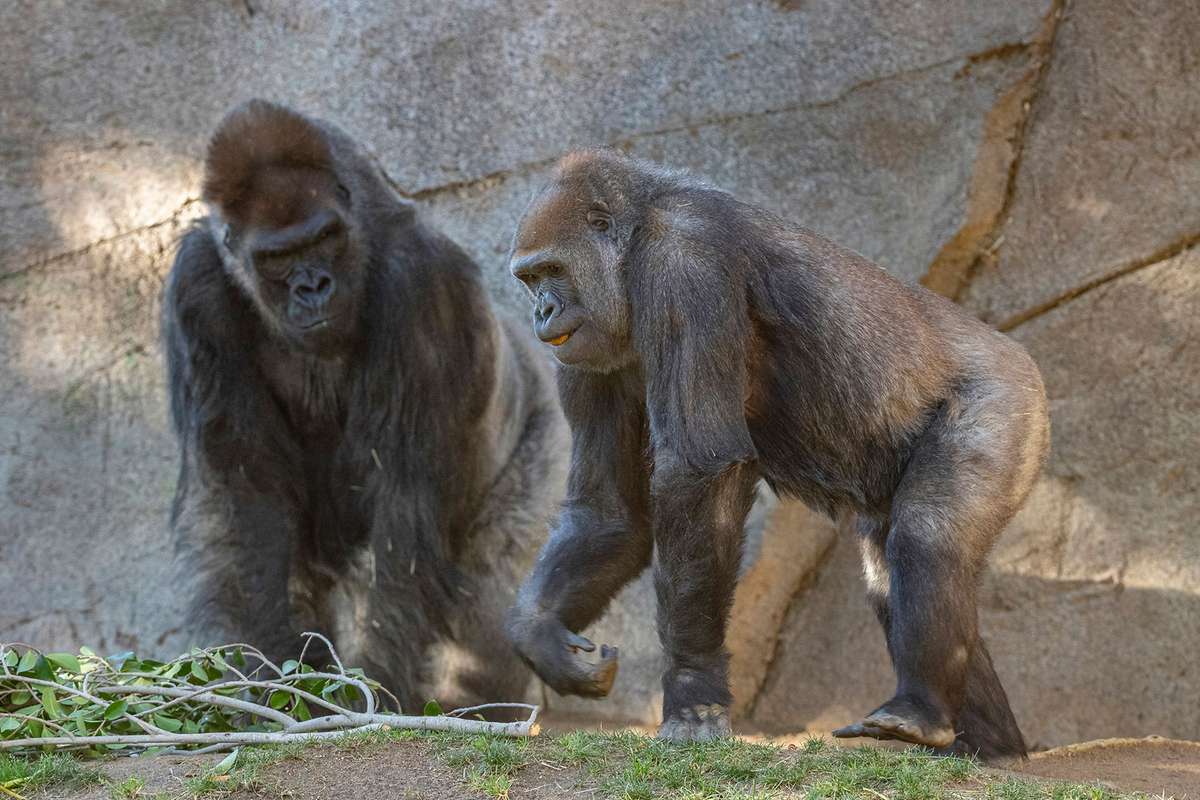
Several great apes at the San Diego Zoo were given experimental COVID-19 vaccines for animals Wednesday morning, becoming the first known non-human primates to receive a vaccine in the US.
Back in January, eight gorillas at the San Diego Zoo Safari Park tested positive for COVID-19. Global Conservation and Wildlife Health Officer Nadine Lamberski told Insider in an interview that the "alarm bells" first went off when the zoo's 49-year-old silverback gorilla named Winston started coughing a few days after finding out one of their wildlife care specialists had Covid-19.
"As soon as we knew that an employee was positive, we were on high alert, so just that one or two coughs really sent the alarm bells off, and we immediately started to get the permissions necessary to submit samples for diagnostic testing," Lamberski said.
"We really had to divide and conquer it, and everybody had a different role," she said. "We had our wildlife care specialists trying to figure out, you know, if we could separate the animals, and what if one animal was severely ill and had to have intensive care? Was that even possible?"
"So again, we had a lot of people doing a lot of things simultaneously because we wanted to be prepared for any outcome," she continued. "You know, we were hoping for the best but preparing for the worst."
The gorillas had made a full recovery by mid-February, and Lamberski said she worked on trying to obtain vaccines to prevent further infection in the gorilla troop and other apes at the zoo.
Veterinary pharmaceutical company Zoetis developed the experimental vaccine, National Geographic reported, which is not built nor suitable for human use.
In total, nine great apes — four orangutans and five bonobos — were administered the vaccine, including an orangutan named Karen, who was the first ape in the world to have open-heart surgery in 1994.
With fewer than 5,000 gorillas left in the wild, researchers have expressed concern that, because apes live in close family groups, the infection could spread quickly if just one ape caught the virus.
Little is currently known about the effect the coronavirus has on animals, though various animals, including cats and dogs, have tested positive for the virus in the past.
While zoo staff can take some comfort in knowing their gorillas are vaccinated, Lamberski thinks "that big sigh of relief isn't going to come until our entire community is vaccinated, until the vaccine gets to, you know, remote communities all over the world, to areas where gorillas live in the wild."
Paul Baribault, CEO and President of the San Diego Zoo Wildlife Alliance, told Insider he hopes the pandemic will help people realize the interconnectedness that humans have with nature.
"As we move forward out of COVID, I think we certainly hope that the world has a greater understanding of our interdependency, that we are dependent on the health of nature," he said. "We are dependent on the health of wildlife. Our health is tied to all of it."
This story originally appeared on BusinessInsider.com.
Source: Read Full Article










